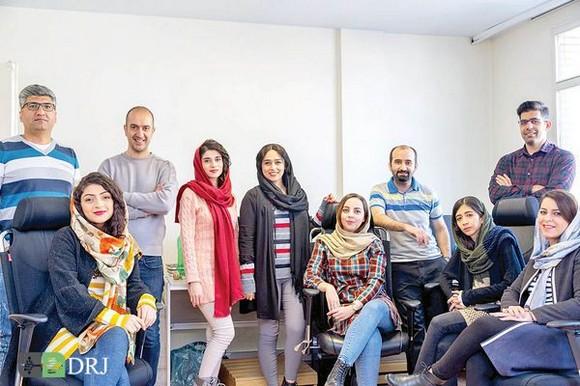Sudan, a country with a population of around 40 million, has gone both unnoticed and untouched by regional and international tech players, and for good reason. The economy today is struggling with austerity measures, inflation, and a weakened currency, with no sign of improvement in the near future. Added to that is a tech sector that had been largely unproven up until recently.
Yet a week ago, the car-sharing app Careem launched its services in the capital city Khartoum, establishing itself as the first regional tech giant entrant and signalling a big shift in investor attitude toward the country.
What makes Sudan an attractive market for tech players?
Though Careem’s entrance may have come as a shock to Sudanese globally, a macro-level look at the country paints a different picture and highlights why the news should not come as a surprise.
First, Sudan has very appealing demographics. Khartoum alone has a population of around 6.5 million (including Omdurman) and 75 percent of that population is under the age of 36. It also boasts a 90 percent mobile phone penetration rate and fast-growing 30 percent internet penetration rate (higher than the East Africa average of 27%). Additionally, mobile internet in Sudan represents 82 percent of internet traffic, according to the State of Sudan Digital Report 2018.
Second, while the local population is more tech-savvy and eager for digital services than ever before, that demand has barely been addressed. Very few local tech startups have emerged successfully. While Careem will have to compete with existing local car-sharing services such as Tirhal and Mishwar which have similar operating models, the tech space in Sudan remains mostly untapped.
Third, the lift of US economic sanctions in October 2017 has paved the way for foreign direct investment and announced that Sudan is open for business. While the effect of that may only be felt in the medium-to-long term, the move certainly points toward faster-growing economic activity moving forward. Sudan, with its strategic location and unique blend of cultures, can eventually become a bridge linking the MENA and Sub-Saharan Africa tech scenes.
This optimism is shared by many local businessmen. Abdelaziz Mohammed, Chief Commercial Officer at Canar Telecom, believes that “Sudan has the potential to replicate the tech success of India in the early 2000’s. We have a high volume of incredibly well educated, relatively low-cost employees making us a great market for tech outsourcing”.
Why is Careem’s entrance in Sudan big news?
What does all this mean? For Careem, it has entered a large market with guaranteed demand and high future growth potential. When asked why the decision was made to enter Sudan, Ibrahim Manna, Managing Director of Emerging Markets at Careem, said the “mission of the company is to simplify lives and create an organization that inspires others. This launch embodies that statement. We want to be trend setters. Sudan, like other markets we have entered into, is full of potential. We want to help build the tech ecosystem and solve problems related to transportation and infrastructure. We also see this as an opportunity to support local talent as well as help attract talented Sudanese living abroad back to their home country”.
Other foreign tech players should certainly take notice and recognize Sudan as a key emerging tech market in MENA and Africa. But more importantly, for Sudan, the news signals a very positive change in attitude toward tech, and presents an exciting opportunity waiting to be seized by local players and stakeholders.
Tech entrepreneurship in Sudan today is driven by a well-educated and creative young generation. Great ideas have been proposed during events such as Startup Weekend Khartoum, but entrepreneurs have been unable to execute in a manner that addresses demand. However, this is set to change. Khalid Ali, co-founder and chairperson of coworking space Impact Hub Khartoum believes that “Careem has set their eyes on securing a position in an untapped but promising market. Tech entrepreneurship in Sudan today is characterised by a serious gap when it comes to execution; taking tech businesses from ideation to realisation then scale hasn’t been the norm here. We hope to see a reversal of that very soon. With more incubation programs kicking off, and support platforms like Impact Hub Khartoum becoming accessible / available, tech entrepreneurs now have better chances of launching successful businesses”.
The path forward for local players and stakeholders is clear. Entrepreneurs must step up their game and learn from successful tech companies locally and internationally to address unmet demand. Likewise, businessmen and investors must provide incubation / acceleration opportunities for start-ups to build capabilities as well as the capital required to prove concepts and reach scale. Careem has an opportunity to play a part in this to cement its status in the Sudanese tech market. Finally, government policies need to encourage growth in the digital space, by providing incentives to local entrepreneurs and tech players; doing so will certainly go a long way in boosting growth and tackling youth unemployment.
Overall, Careem entering Sudan is news that will generate a spur of excitement. We should expect to see a lot more activity in Sudan’s tech space moving forward. Local entrepreneurs and businessmen will likely be motivated more than ever to tap into an underdeveloped market. Meanwhile, foreign players and investors will take notice of Sudan’s emergence in tech and likely follow suit.

ایده ها برای استارت آپ موجب رونق کسب و کارهای اینترنتی
آینده / استارت آپ

استارتآپها ادبیات بازار سرمایه را بلدند؟
استارت آپ

صدور تاییدیه دانش بنیانی شتابدهنده صدر فردا
اخبار / استارت آپ

اپلیکیشن شارژاپ
گوناگون / استارت آپ / رپرتاژ آگهی / بازتاب

جذابترین ایدههای B2B در سال 2020
استارت آپ

تعریف استارت آپ startup
دانشنامه / استارت آپ / مقاله

۱۰ استارتاپ که بدون سرمایه به سوددهی رسیدند
استارت آپ

ایده ها و پیشنهاد برای استارت آپ در سال جدید
راهکارها و ترفند ها / استارت آپ

استارتآپ ایرانی؛ مرجع اول زنان افغان
استارت آپ

شروع یک کسب و کار نوپا پلتفرمی
استارت آپ

برنامه شبکه اجتماعی تیندر
گوناگون / معرفی وب سایت / استارت آپ

10 استارت آپ برتر تاکسیرانی جهان
استارت آپ

پخت پیتزاهای هیجان انگیز با هوش مصنوعی
آینده / استارت آپ

ایده های استارتاپی فراموش شده
دورنما / بازار / استارت آپ

اپل، استارتاپ فناوری خودران Drive.ai را تصاحب کرد
استارت آپ

بررسی مهمترین چالشهای تیمهای استارتاپی
استارت آپ

نگرانی کاربران از هزینه تعمیر و تامین قطعات
گفت و گو / بازار / استارت آپ

مصاحبه با مدیرعامل و بنیانگذار استارتاپ Moz
گفت و گو / استارت آپ

آشنایی با استارت آپ های حوزه مدیریت آب
استارت آپ

راه اندازی ۷۰ استارت آپ توسط نخبگان ایرانی
استارت آپ

معرفی هشت استارتآپ موفق ایرانی در حوزه فینتک
استارت آپ

اولین مرورگر شرعی دنیا
استارت آپ

از صفر تا پیست
استارت آپ

معرفی برترین استارتاپهای CES 2019
اخبار / استارت آپ

ازدواج با فرد ثروتمند یا خوش اخلاق
سبک زندگی / برترین ها

هدف از تشکیل خانواده چیست
سبک زندگی

اول عاشق شویم، بعد ازدواج کنیم
سبک زندگی

خانواده چیست
سبک زندگی

مشاوره خانواده چیست؟
سبک زندگی

اولویتهای پسانداز خانواده چیست؟
سبک زندگی

هزینه های خانواده چیست؟
سبک زندگی

راهکار بیشتر حرف زدن اعضای خانواده چیست؟
سبک زندگی

چرخه زندگی و خانواده چیست؟
سبک زندگی

اهداف و اصول تشکیل خانواده
سبک زندگی

آموزش جنسی نادرست به سبک خانم جلسه ای
سبک زندگی

لطفا تماشاچی آزار زنان نباشید!
سبک زندگی

کودک آزاری؛ از نشانهها و دلایل تا درمان
گزارش / سبک زندگی / پرورش کودکان

روش های تعیین هدف و مسیر زندگی برای رسیدن به موفقیت
سبک زندگی
مجله اینترنتی دیپروتد نشریه مجازی بر بستر اینترنت به مسائل آموزشی و مقالات پیرامون کسب وکار های نوپا یا استارت آپ ها و سبک زندگی است فعالیت و محتوای مطالب ارائه شده در سایت همه بیشتر در حوزه مدیریت، کارآفرینی ، روانشناسی ،اقتصادی و فناوری اطلاعات است نام اصلی دیپروتد "ریشه های عمیق " با مجوز رسمی از هیات نظارت برمطبوعات مشغول به فعالیت است
ما را در شبکه های اجتماعی دنبال کنید
تمامی حقوق برای سایت فوق محفوط است.
S-TECH: ایرانی توانمند | Powered by: مجله اینترنتی دیپروتد












